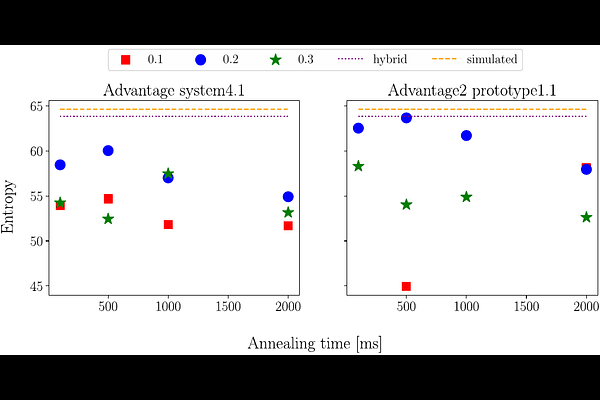Fixed interval scheduling problem with minimal idle time with an application to music arrangement problem

Fixed interval scheduling problem with minimal idle time with an application to music arrangement problem
Ludmila Botelho, Özlem Salehi
AbstractThe Operational Fixed Interval Scheduling Problem aims to find an assignment of jobs to machines that maximizes the total weight of the completed jobs. We introduce a new variant of the problem where we consider the additional goal of minimizing the idle time, the total duration during which the machines are idle. The problem is expressed using quadratic unconstrained binary optimization (QUBO) formulation, taking into account soft and hard constraints required to ensure that the number of jobs running at a time point is desirably equal to the number of machines. Our choice of QUBO representation is motivated by the increasing popularity of new computational architectures such as neuromorphic processors, coherent Ising machines, and quantum and quantum-inspired digital annealers for which QUBO is a natural input. An optimization problem that can be solved using the presented QUBO formulation is the music reduction problem, the process of reducing a given music piece for a smaller number of instruments. We use two music compositions to test the QUBO formulation and compare the performance of simulated, quantum, and hybrid annealing algorithms.